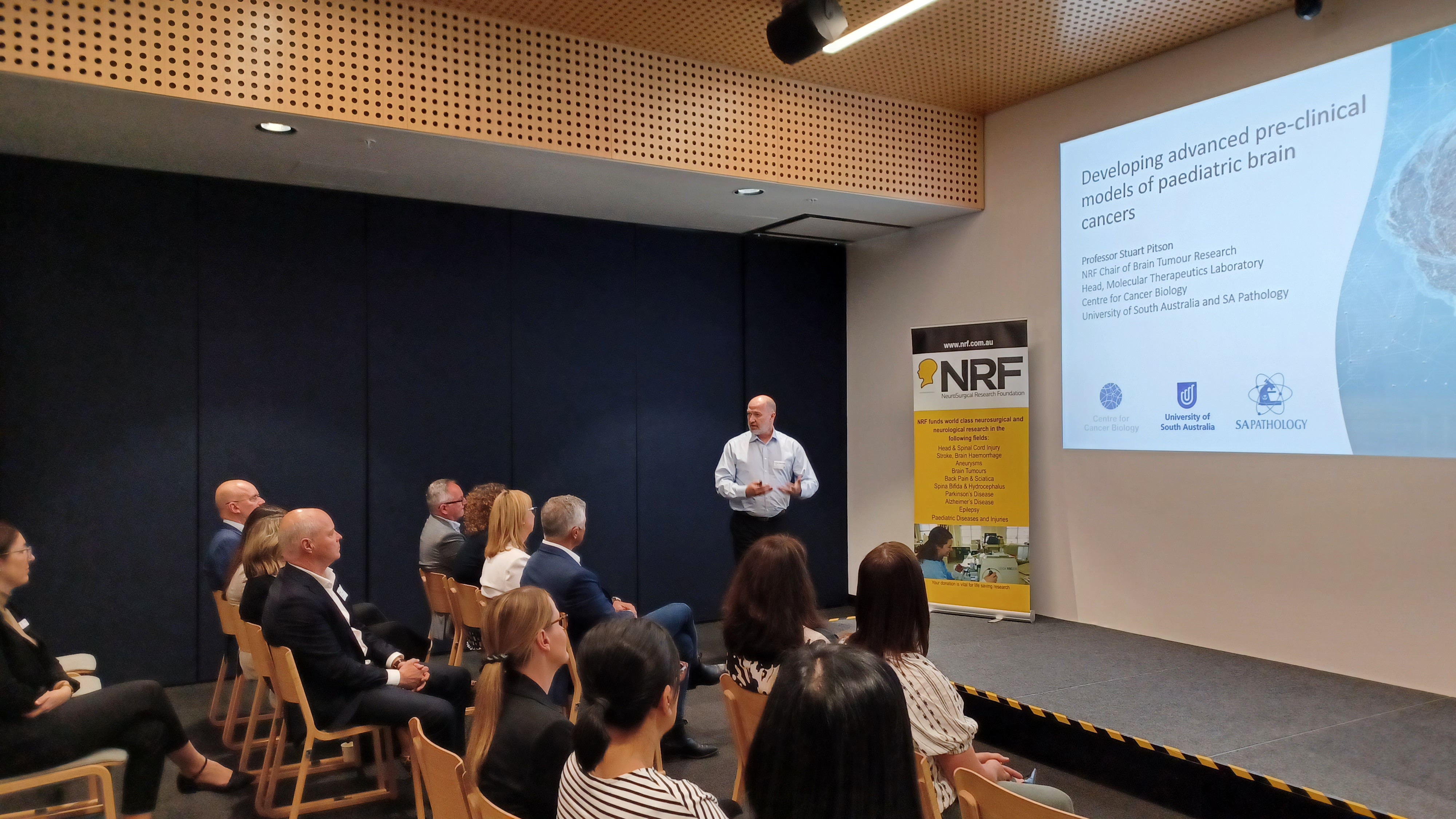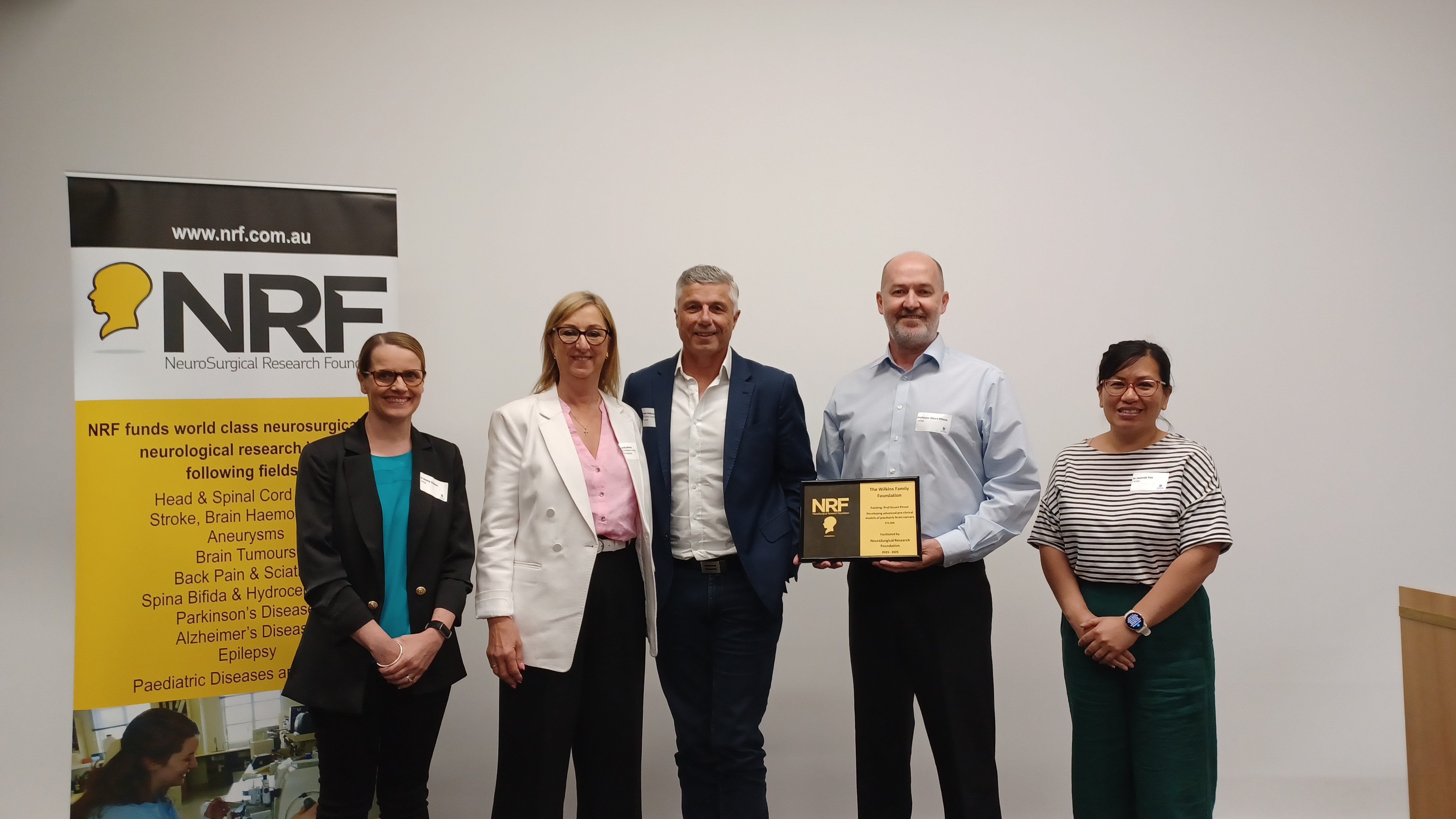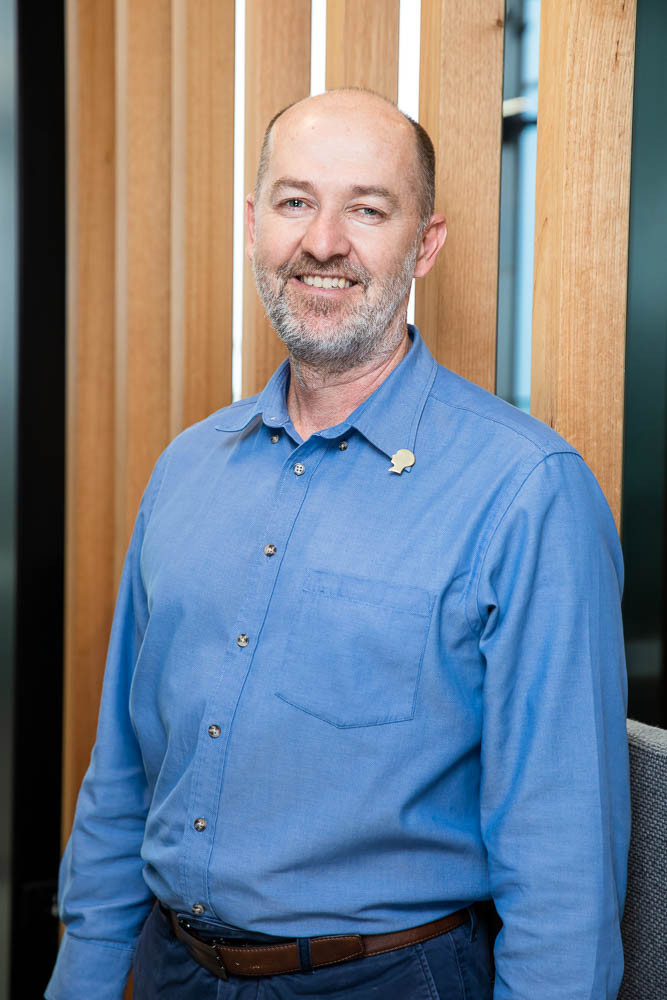Life-Changing paediatric brain cancer initiative funded by the generous Wilkins Family Foundation
The Wilkins Family Foundation pledge $75,000, over 3 years, to the NRF, to enable a Paediatric Bain Cancer research project at The University of South Australia

The NRF celebrates its long relationship with the Wilkins Family Foundation spanning over 8 years and having raised over $380,000 for neurosurgical research. This funding has allowed the purchase of many pieces vital equipment over the years leading to improved, safer, and more streamlined treatments in our South Australian hospitals. Now building for the future the foundation has pledged funding to establish a paediatric brain tumour with the goal to increase understanding at crucial point in South Australian history:

Paediatric cancers are rare and the availability of advanced pre-clinical models of these tumours is even rarer. Researchers are currently extremely limited in their ability to conduct high quality research into paediatric cancers due to the lack of access to advanced pre-clinical models of these tumours.
The plan is to establish a world-wide resource. We will monitor and measure the number of samples collected and then accessed by Australian and world-wide researchers.
Headed by Professor Stuart Pitson, Centre for Cancer Biology at the University of South Australia, the researchers aim to develop a living paediatric brain cancer biobank through processing of fresh tumour material (resected from children with brain tumours as part of their normal therapy) into patient-specific cell lines.The donation will will fund the salaries and associated laboratory costs of a part-time researcher to undertake this vital work.
‘Our focus will be on malignant paediatric brain tumours: medulloblastoma, high grade glioma (including anaplastic astrocytoma, diffuse midline glioma (DMG/DIPG) and glioblastoma) and ependymoma. The development and use of these models will facilitate better understanding of the drivers of tumour growth and resistance to current therapies, enable the discovery and evaluation of new therapies, and translation of this research into the clinic’.

Indeed, the research team has participated in numerous collaborative studies to understand fundamental cancer biology and conduct pre-clinical evaluation of new potential therapies in brain cancer models using patient tumour material. Using this collaborative approach, they will use their established connections, and establish new ones to examine the biology, drivers of response and resistance to therapy, and response to new therapies in these paediatric brain cancers.
With Australia’s first proton radiation centre (Bragg Centre for Proton Therapy and Research) being built in Adelaide, the local availability of advanced pre-clinical models of paediatric brain cancer will allow research questions to be asked about this advanced mode of therapy, including late effects of the therapy, immune response to radiotherapy, changes in circulating tumour DNA (ctDNA), and many other questions. Should this infrastructure not be in place, we lose a real opportunity to be world leaders in this space and attract leading clinicians and researchers to South Australia, given our unique patients we will capture as the only centre in the country offering this therapy!
https://sahmri.org.au/about/australian-bragg-centre-for-proton-therapy-and-research

Developing advanced pre-clinical models of paediatric brain cancers
Funding: $75,000 - Wilkins Family Foundation (3 yrs)




